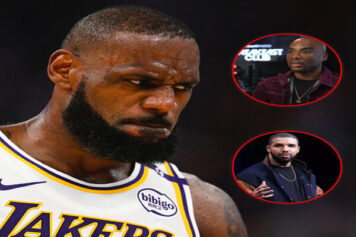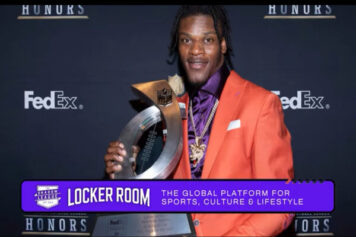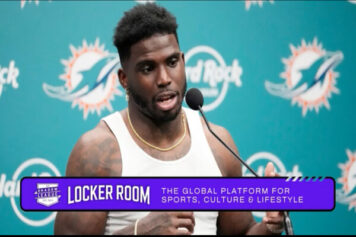Gaming has always been a vehicle for escapism and friendship building within Black households.
More than likely, if you went over to your friend’s house you would either come across a sports game or a fighting game. These two categories have always been the cornerstones of the Black gaming community for both extreme gamers and casual players.
But fighting games have historically been known to have questionable stereotypes when it came to the character’s appearances and personalities. Street Fighter’s Balrog was originally depicted as an overly aggressive, dark-skinned African-American boxer who’s considered a bad guy. His character was inspired by the real-life boxer Mike Tyson. Dhalsim is a limb-stretching Yoga master Indian fighter who’s temple stage previously included elephants watching on. E. Honda, one of the original eight playable characters in Street Fighter II, is a Japanese pro sumo wrestler whose fighting stage prior included a bathhouse. And the list goes on.
Although over time, changes have been made to add depth and unique storylines to both old and new characters, fighting games and more specifically Street Fighter have been plagued with various questionable stereotypes. While attending Red Bull Conquest finals in DC, I spoke with popular and energetic Black FGC commentator Tasty Steve to get his thoughts on the effects of these questionable stereotypes within the gaming community.
[jwplayer F8D3sfnr]
The Shadow League: When it comes to fighting games, there are known stereotypes and cliches. As a gamer who’s seen these stereotypes being perpetuated, how do you feel about it?
Tasty Steve: Just for clarity’s sake, I’m going to talk about both sides of this argument.
For one, you have to remember that these first initial characters, like Balrog the boxer, obviously he’s modeled after Mike Tyson right? To avoid legal stuff, they changed the names of the character overseas, like Mike Bison, Vega and etc. However, the main creation of these characters is for people to relate. They want you to connect with a character digitally that you might not be able to interact with outside of the game.
So, I feel like the thought process that goes into making any character and specifically, these fighters, are the fact that designers want you to relate but have no idea how to outside these caricatures, these stereotypes I guess.
Now on the other side, it still looks really stupid to not adapt, right? Balrog spoke in a very certain way, carried himself in a certain way, but (Capcom) had to kind of refine those negative features over time. With each passing game, these additional extra quirks added to these fighters to make you understand that they aren’t one-dimensional characters. Even Balrog has evolved. He’s now a boxing coach who tutors even though he is still a bad guy. I feel like as time progresses, it lightens up.
Because even in the newer games like Guilty Gear, they have a Black character named Venom who’s gay. And people don’t know that because they don’t play the game and they don’t know about the story. I feel like that inclusion is really powerful. These characters are constantly evolving and we need to see these new characters break those stereotypes and change.
Street Fighter’s Crimson Viper, who is a mom, has a different kind of style to her. So I say that a percentage of people see these characters and they’re under the idea that the stereotype is really based off of a bad thing. Now, it’s the company’s job to update these characters in a changing market where the gamer demographic is diverse.
When it comes to games like Street Fighter, they are making changes to classic characters because some stereotypes are seen in a negative light. Your love for the character may have been rooted in a negative stereotype, but Capcom wants fans to have a connection to these characters in the right way going forward.
Get Off The Sticks: The Top 7 Most Competitive Video Games Of All-Time
The Shadow League: Have you noticed a reaction or response to these stereotypes overseas? Some of these gamers probably met a Black person for the first time in person at competitions.
Tasty Steve: I think the initial introduction to anybody of a different culture, it changes. I’ve definitely been to countries where I’m like “this guy is looking at a Black guy for the first time.” I understand that, being a guy who loves to take in other cultures and see how people react. Also, I feel like it helps to a certain degree of making people feel comfortable to have discussions with others. Fighting games kind of bridges that gap. The icebreaker is the fact that you have a common ground, much like if you talk to someone who has the same interest in music.
I was one of the kids that came from a place that was under the belief that there are only legit Black and white people in this world, at one point in time. But, as I grew older…my introduction to the fighting game community was through a friend who worked at a food spot around the corner from my house. The only reason I found out about FGC was that of my friend David Chung, who worked at the food restaurant.
Now, I have friends in Korea because we have a connection of playing the game. We’re bridging the gap and being able to have an understanding of the game from the beginning makes it easier for me to go to different places and speak to different people.
The Shadow League: Gaming has not only diversified cultural experiences but also career opportunities. How has Street Fighter progressed in terms of allowing players to live off of winnings?
Tasty Steve: I was having a conversation a few years ago with Arturo Sanchez, he’s a very popular east coast streamer and is a legendary player of Street Fighter. One of the things he told me years ago before I was even professional, was like “yeah man you have to remember that the fighting game community is not that big. When it comes to people who actually play in it, who actually make money off of it and thrive in it, it’s really not that big” When it comes to how people survive, I watched a guy win $120,000, that’s a lot of money. That’s life changing money. I think it’s more than just being able to survive, it’s more how you need to survive.
To answer your question more directly, I feel like the fighting game community is one of the smallest when it comes to monetary gain and prize winnings. Fighting games are on the smallest end. FGC has gotten closer but it is nowhere near Overwatch and League of Legends, I hope it gets there for everyone involved. I want everyone to be able to succeed and do this.
[jwplayer sgY5vG3k-31i02teQ]
The Shadow League: I watched a YouTube video from RobTV and he was talking about how there’s a different level of practice camaraderie with Japanese players vs the U.S. Is there some level of camaraderie amongst Black gamers in the fighting game community that outside people don’t see or know?
Tasty Steve: So, I wouldn’t say it is specifically because it is all about the demographic. If I play with most Black people then that’s what’s going to happen. If I play with mostly people of color, that’s what’s going to happen. Growing up, I obviously only played with people from my community, people of color. So for me, most of my friends looked like me until I branched out. I came from playing at an arcade where it was ten Black people and one white dude. Nobody really cared. But that was the ratio.
As I got older and went to different places it changed. When I was in California it was mostly Latinos that I was playing with at a certain time because the game demographic changed. Certain games have certain audiences and sometimes that does affect it. However, I feel the biggest difference is availability. Where I come from it is very hard to find people who I can say “I’m going to go to these people’s houses and play video games for eight hours.” I had to lie to my mother because it wouldn’t make sense, I can’t say “yeah I’m going to this 35-year-old man’s house to play video games”.
The scene has definitely changed, YouTube has changed it, the fact that people are traveling has, and because there’s more money, it has all changed.



